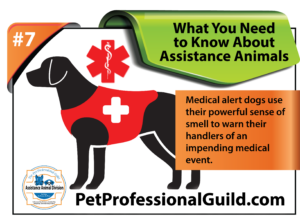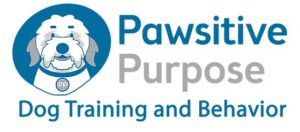Pets and Their People Blog
When You See Service Dogs with Their Handlers in Public, Remember These Three Tips
Service dogs are trained to provide specialized services to individuals with disabilities in order to help them live more independent and fulfilling lives. Service dogs are an invaluable resource for individuals with physical and mental disabilities. With this context in mind, it is important to understand proper service dog etiquette.
Here are three tips to remember when you see service dogs and their handlers in public:
Tip #1: First and foremost, it is important to remember that a service dog is not a pet. Service dogs are highly trained to provide assistance to individuals with disabilities and should not be treated like pets. It is inappropriate to pet or otherwise interact with a service dog without the express permission of the handler. Even if the handler does give permission, petting should be done calmly and gently.
Tip #2: Next, it is important to avoid distractions when encountering a service dog. Service dogs must stay focused and attentive in order to perform their duties, and any distractions can interfere with their abilities. For example, loud noises or sudden movements can cause dogs to become distracted and not be able to properly assist their handlers.
Tip #3: Finally, it is important to remember that service dogs are working animals and should not be given food or treats. While it may be tempting to offer a service dog a reward, it can interfere with their training and cause them to neglect their duties. In some cases, it can even be dangerous if the food is not appropriate for the dog’s diet.

Service dogs provide invaluable assistance to those with disabilities and should be treated with respect and dignity. By following these three basic tips for service dog etiquette when you see service dogs teams in public, you can help ensure that everyone is able to enjoy the benefits that service dogs provide.
About the Author
Tracey Hagan is a force-free, fear free certified professional trainer in central Kentucky. She has been training for more than 16 years and worked with 12 different species over the years. Tracey specializes in aggression and service dogs, but takes on other cases as well. Credentials: CPDT-KA, CBCC-KA, CSAT, CTDI, SDJ, CCFC, Certified Fear Free Professional Trainer, Certified Family Dog Mediator, Be a tree Presenter, AKC Evaluator. You can find Tracey on Facebook and the Pawsitive Purpose website. She is also on the Pet Professional Guild (PPG) Assistance Animal Committee.
About the Pet Professional Guild (PPG) Assistance Animal Division
This volunteer committee includes a broad representation of pet professionals with a variety of skills and interests specific to assistance animals. We invite individuals and professional organizations interested in training, working with, and receiving support from animals who assist people in different ways to join PPG. Pet guardians can join for free, and as members will have access to additional pages on our website (along with some amazing vendor discounts). We look forward to welcoming you into an inclusive group that prioritizes humane treatment and welfare of both people and assistance animals!

